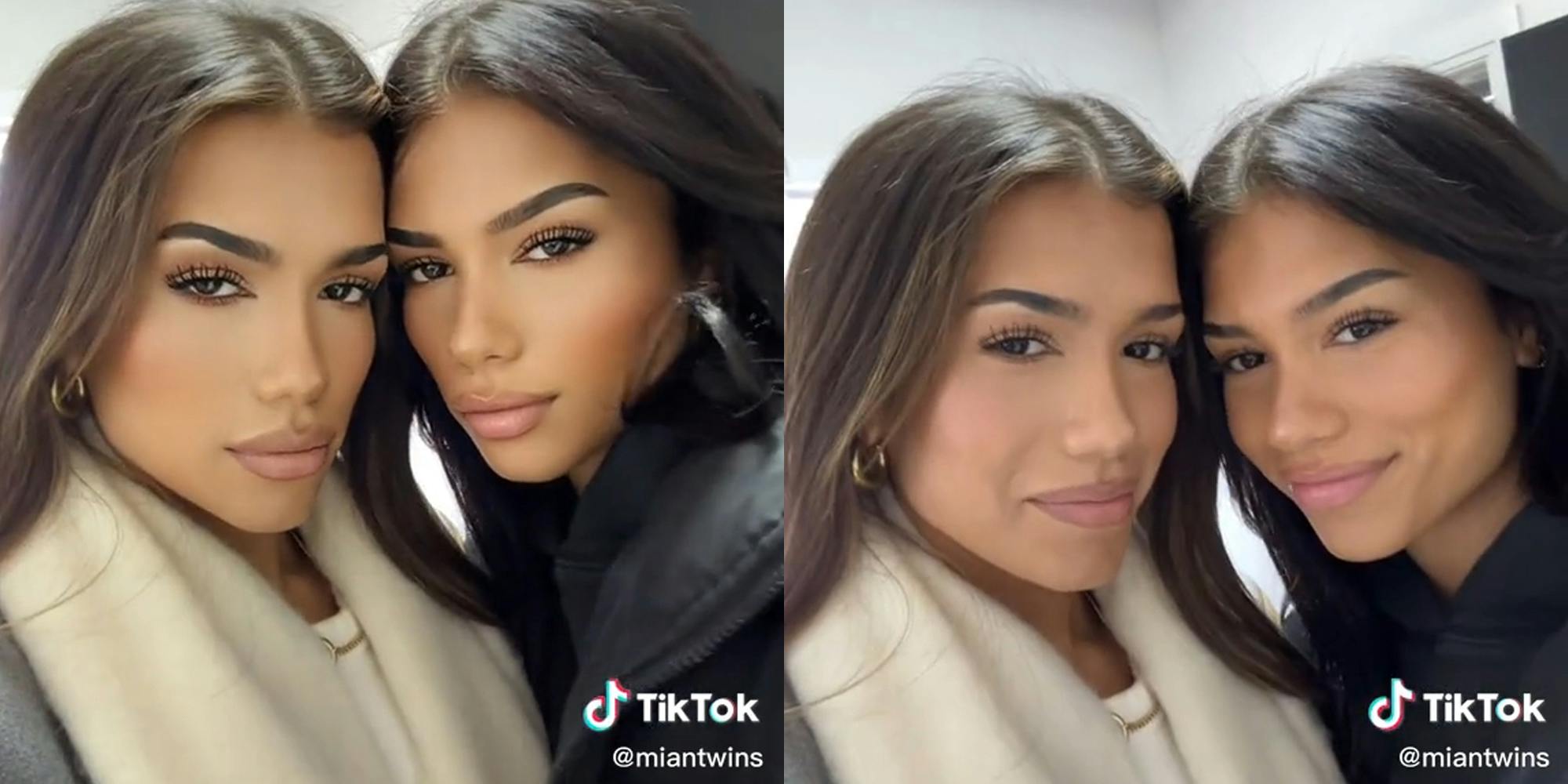TikTok filters can be sorted into a few different categories: Filters that guess arbitrary things about the user, ones that purport to make users look silly (like the unicorn filter), games, and filters that look similar to makeup.
The "bold glamour" filter is the latter, and it has come under fire for just how uncannily it makes users look like they are truly wearing eyeliner, contour, false eyelashes, lip gloss and liner, brow gel.
"How is this legal," TikTokers the Mian Twins wrote in the overlay text of their video that shows them both trying the filter. Their comment about the filter's legality seems to point to how different the filter is from others: Other TikTokers remarked that the filter looked like Facetune because of its ability to adapt to each users' face, or that the filter is "toxic."
TikTokers have also said that using the filter and comparing its results to their own face made them feel bad about the way they looked.
Why it matters
TikTokers Rosaura Alvarez and Hira Mustafa talked more in depth about the harm that the filter can have on a user's self-image.
Alvarez explained that kids who use the filter might believe that there is something wrong if they don't naturally look how the filter makes them look.
"As someone who experienced body dysmorphia growing up this makes me sick to my stomach," Alvarez wrote in the caption of her video about the bold glamour filter. "TikTok u can't be enabling this."
Mustafa expressed a similar message in her TikTok: She said she used to use filters on her face when posting photos of herself on social media when she was younger, and doing so had a negative impact on her self esteem. Plus, she realized that using filters on herself affected the self-esteem of those who viewed her photos, too.
"I don't want to make other people feel bad, so I stopped using filters," Mustafa said. "I really encourage you to not use these filters. It has a real impact on our mental health—and on anyone that views that content."
So, the issue is really twofold. People aren't just comparing themselves to others who are using filters, they're comparing themselves to an augmented, "pretend image" of themselves.
And that's toxic—on multiple levels.









No comments:
Post a Comment
Keep a civil tongue.